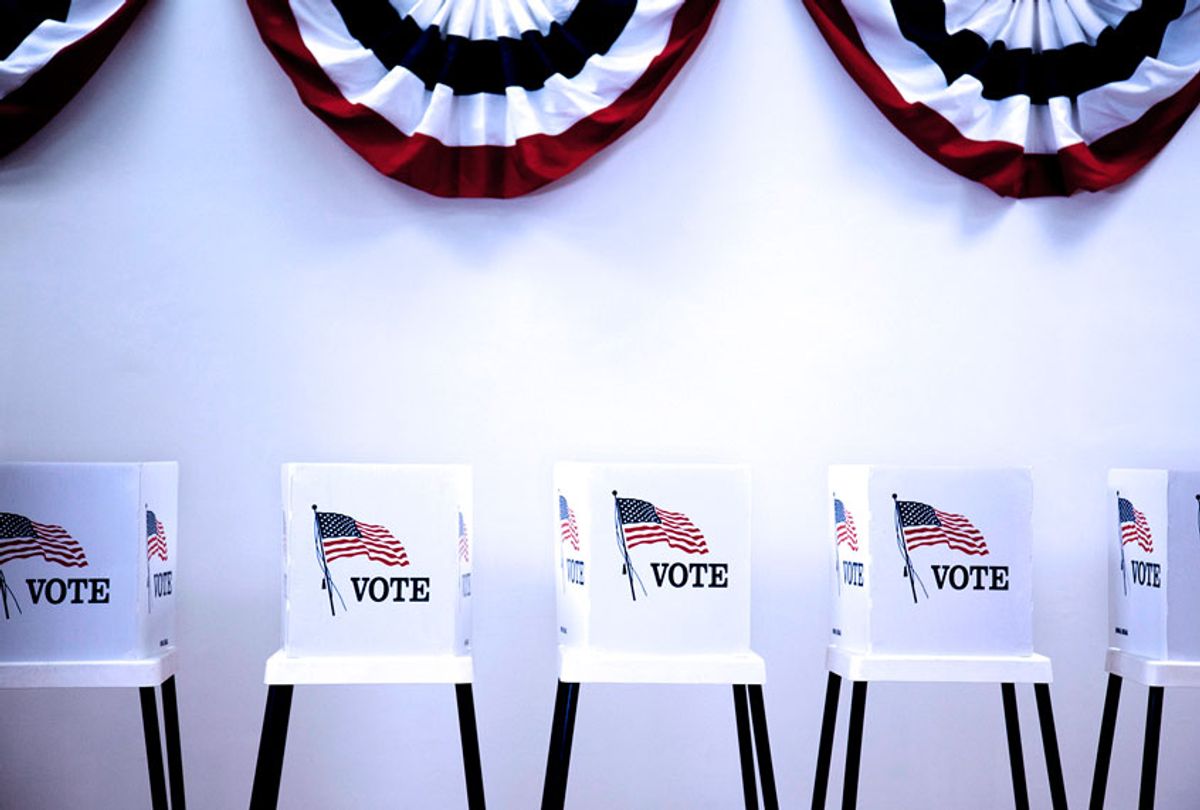Democrats cried foul after a judge ordered a purge of nearly a quarter-million voters in response to a lawsuit filed by a right-wing group on Friday.
The Wisconsin Elections Commission sent a letter to nearly 234,000 voters in October warning that they needed to re-register in order to remain on the voter rolls because authorities believe they had relocated. “If you move, even to an apartment in the same building, you must update your voter record by reregistering,” the commission warned at the time.
The letter did not set a deadline for voters to re-register and the commission later said that voters would have until 2021 to do so. But the conservative Wisconsin Institute for Law and Liberty filed a lawsuit arguing that the commission is required to remove those voters within 30 days of sending the letter.
Ozaukee County Circuit Judge Paul Malloy, who was appointed by Republican Gov. Scott McCallum in 2002, agreed with the complaint on Friday, ruling that the commission must remove everyone on the list who does not re-register within 30 days, The Milwaukee Journal-Sentinel reports.
Democrats were hit hardest by the purge, the outlet noted. Milwaukee and Madison, which are the state’s biggest Democratic strongholds, received 23 percent of the letters despite making up just 14 percent of the state’s registered voters. Fifty-five percent of the letters were sent to districts that voted for Hillary Clinton over President Donald Trump.
The plan for a large-scale voter purge comes after a previous Republican-led 2017 effort wrongly purged more than 18,000 people before reinstating them to the voter rolls shortly afterward. Other states’ voter purges have also led to thousands of legal, eligible voters being misidentified as ineligible.
Gov. Tony Evers, a Democrat, decried the court ruling on Friday.
“I won the race for governor by less than 30,000 votes,” he wrote on Twitter. “This move pushed by Republicans to remove 200,000 Wisconsinites from the voter rolls is just another attempt at overriding the will of the people and stifling the democratic process.”
Evers’ 2018 race against former Gov. Scott Walker was not the only one decided by a slim margin. Trump defeated Clinton by fewer than 23,000 votes in Wisconsin in 2016.
Wisconsin figures to be a key battleground state once again in 2020, as does Ohio, where voting rights advocates are sounding the alarm over thousands of absentee ballot applications that were thrown out during last year’s general election over missing or mismatched signatures.
At least 21 counties in Ohio rejected at least 6,500 absentee ballot applications because of a signature issue, The Associated Press reports. Another five counties rejected another 850 applications but did not specify a reason.
Jen Miller, executive director of the League of Women Voters of Ohio, who was herself wrongly targeted in an Ohio voter purge, said the signature requirement on the absentee ballot application presents an inefficient hurdle for voters in an already complicated system.
"So a person can register to vote online, but if you go online to request an absentee ballot, a form is mailed to you that you have to mail back," she said, adding that people should be able to request absentee ballots online.
Ohio voters are increasingly casting absentee ballots. Roughly 1.4 million of the state’s 8 million registered voters cast absentee ballots last year.
The report comes after Ohio came under fire for wrongly targeting tens of thousands of people for removal from the rolls. Nearly one in five names on a list released by the Ohio secretary of state’s office was put on the list in error, The New York Times reported. Miller’s was one of the names on the list.
“I voted three times last year,” she told the outlet. “I don’t think we have any idea how many other individuals this has happened to.”
Republicans say these purges are necessary to clean up lists of inactive voters and prevent voter fraud. But voting rights groups say they are simply making it harder for legal voters to cast ballots to police a problem experts say doesn’t exist.
The Brennan Center for Justice at the New York University Law School warns that “ extensive research reveals that fraud is very rare” and “voter impersonation is virtually nonexistent” yet “repeated, false allegations of fraud can make it harder for millions of eligible Americans to participate in elections.”



Shares